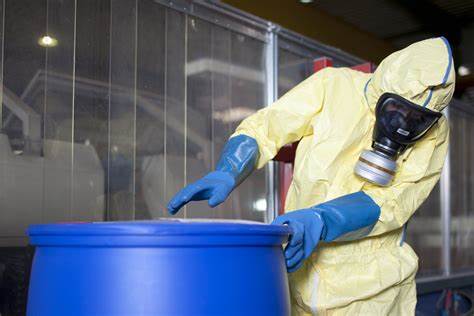Organic Solvent Disposal: Best Practices for Overall Safety

Organic Solvent Disposal: Best Practices for Overall Safety
Organic solvent disposal is important as organic solvents are commonly used in various industries for cleaning, degreasing, and as an ingredient for products such as paints, coatings, and adhesives. While they are useful, they can also be hazardous to human health and the environment in a number of ways. For one, improper disposal of these types of substances could harm human health as well as the earth we live in. Therefore, it is essential to dispose of organic solvents safely and properly.
Read on as we learn more about disposing of organic solvents and the best practices for overall safety.
What are Organic Solvents?
Organic solvents are carbon-based compounds that are used to dissolve or dilute other substances. They are commonly found in industrial and household products such as paint thinner, nail polish remover, and degreasers. Organic solvents can be toxic, and flammable, and can pose a danger to human health and the environment.
Safety Precautions to Keep in Mind
When working with organic solvents, it is essential to take safety precautions to prevent any accidents. The following are some safety precautions that should be taken when working with organic solvents:
- Work in a well-ventilated area to prevent the buildup of vapors.
- Wear gloves and protective clothing to prevent skin contact or ingestion.
- Do not smoke, eat or drink while working with organic solvents.
- Keep organic solvents away from heat sources and open flames.
- Store organic solvents in a cool, dry place.
4 Safe Organic Solvent Disposal Methods
Organic solvent disposal should not be in the regular trash or poured down the drain. Improper disposal can lead to environmental pollution and harm human health. The following are some safe and proper methods for disposing of organic solvents:
- Recycling
Recycling is the best option for disposing of organic solvents. Many facilities accept used solvents for recycling, which can be reused to make new products. Recycling not only reduces waste but also reduces the need for new solvents, which can save energy and resources.
- Incineration
Incineration is a method of disposing of organic solvents by burning them at high temperatures. This method is best used for small quantities of solvents and should only be done at a licensed facility. Incineration can produce toxic emissions, so it should only be done as a last resort.
- Chemical Oxidation
Chemical oxidation is a process that involves using chemicals to break down organic solvents into less harmful substances. This method is best used for small quantities of solvents and should only be done at a licensed facility. Chemical oxidation can produce toxic byproducts, so it should only be done as a last resort.
- Solidification
Solidification is a method of disposing of organic solvents by mixing them with a solidifying agent such as cement or clay. The mixture is then allowed to harden, and the solidified waste can be disposed of in a landfill. This method is best used for small quantities of solvents and should only be done at a licensed facility. This will also help with environmental health and safety.
Conclusion
Organic solvents are useful but can be hazardous to human health and the environment if not disposed of safely and properly. Recycling of organic solvents is the best option for disposing of organic solvents, while incineration, chemical oxidation, and solidification should only be used as a last resort. It is also essential to take safety precautions when working with organic solvents to prevent any accidents. By following these disposal methods and safety precautions, we can ensure that organic solvents are disposed of safely and properly.
Are you looking for organic cane alcohol for tinctures? Simple Solvents offers a convenient way to supply and give access to solvents and ethanol. Shop from us today!
